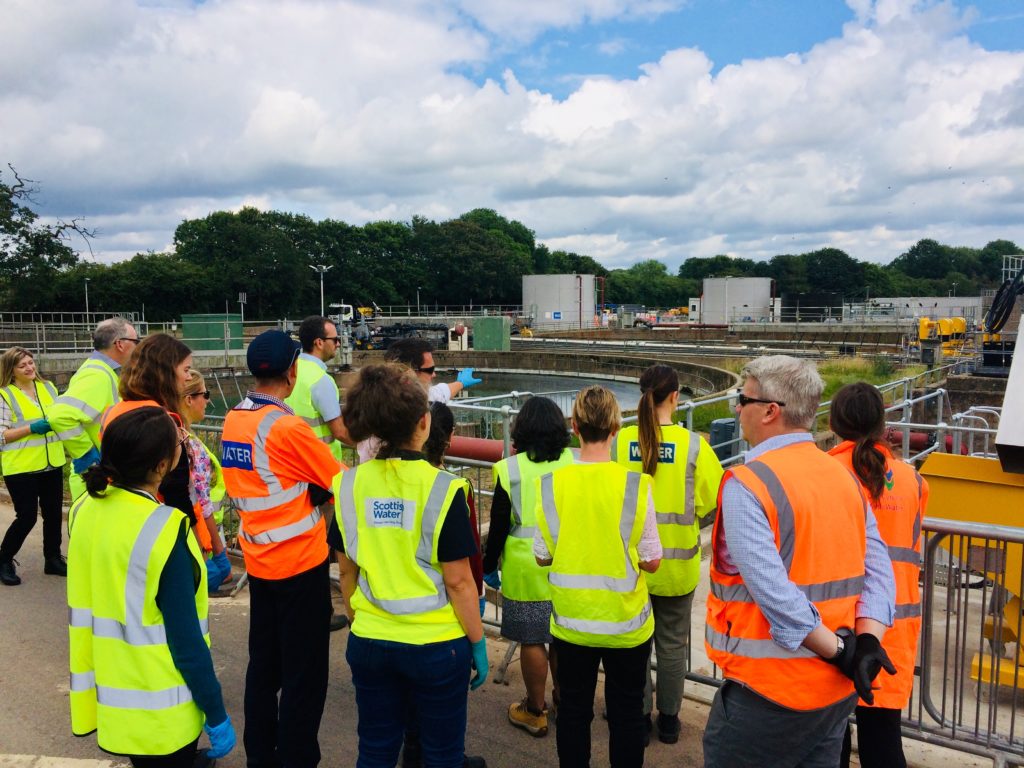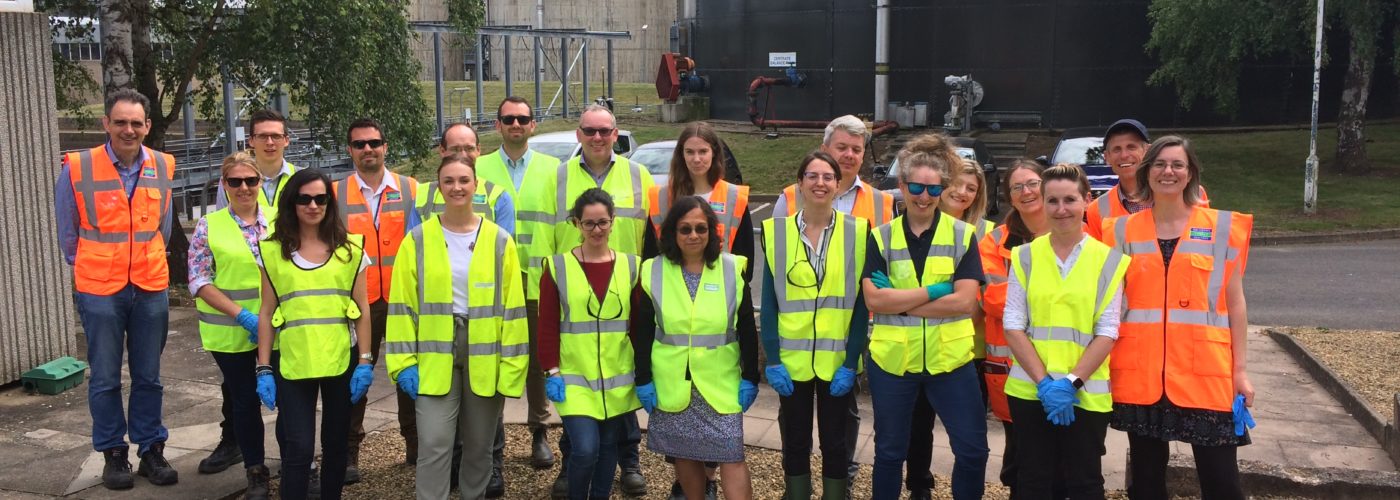As NextGen seeks to challenge embedded thinking and bring new solutions to life, it is essential that our processes to engage, refine and deploy are also circular. At our UK demonstration case, new technologies in energy harvesting and material recovery mean that stakeholders from the whole water value chain, including end-users and the general public, have an important role to play.
At each NextGen site, multi-stakeholder discussions and feedback is organised into a ‘Community of Practice’ (CoP), these diverse groups will meet a number of times as our approach and technologies are refined. Already held in Braunschweig, Germany and La Trappe in the Netherlands, UK demo case Spernal held its first CoP meeting 12 July 2019.
The Severn Trent Water site in Redditch, England is hosting a new test bed facility for wastewater treatment. One of the first technologies to be tested there uses a combination of micro-filters and bacteria to turn sewage into reusable water and generate methane from the separated waste. The recovered methane could then be used to power the entire process.
The technology that makes this possible has been applied in warmer countries, however it has never been applied to cooler climates like northern Europe because the bacteria are slow growing. But by recreating their ideal environment within the process, colder countries could soon utilise the technology.
As a trigger for broader understanding and successful uptake of these technologies, the CoP in Spernal reflected this early stage of development with a focus on stakeholder mapping and engagement and identifying a collective future vision. Water industry professionals were therefore core to the group, accompanied by water and environment authority officials, researchers and mainly agricultural end users.
Participants were welcomed by Severn Trent Chief Engineer, Dr Bob Stear, who spoke about the company’s long term strategy and scenario planning: for both water challenges and the new opportunities and business models unlocked in the circular economy.
For example, the urban environment produces 2 billion litres of wastewater a day, which contains products that Severn Trent can use, and harvest. However, we collectively need to create a market for proven technologies for this and improve the network of stakeholders – both essential elements for a well-constructed and productive CoP.
And participants seemed to agree, with a joint recognition that the UK water industry is facing twin drivers of a need to remove more contaminants from effluent (stricter P consents, concerns over AMR and micro plastics) and a need to reduce overall carbon footprint (e.g. fugitive emissions). Anaerobic treatments at the Spernal test bed can contribute to both.
Three key pillars appeared from the meeting and will fuel future discussions: mainstreaming these innovations faster with an improved innovation culture in the water industry; identifying investment opportunities and rewards; and developing support from customers sceptical about new technologies.
We look forward to hearing their progress and more connected thinking as a result of this kick off at future meetings.

